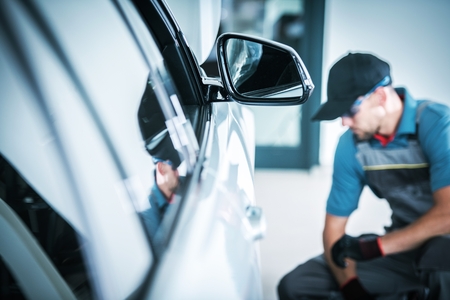1. Introduction to Auction Houses in the Used Car Market
Auction houses play a crucial role in the used car market, serving as key intermediaries between sellers and buyers. They provide a structured and efficient way to sell and purchase used vehicles, catering to individuals, dealerships, and businesses looking for cost-effective transportation options.
What Are Auction Houses?
Auction houses are organizations that facilitate the buying and selling of vehicles through a bidding process. They operate both in physical locations and online platforms, allowing buyers to place bids on cars they are interested in. Once the highest bid is accepted, the vehicle is sold to that buyer.
Why Are Auction Houses Important?
These institutions are essential in the used car market for several reasons:
- Efficiency: Auctions streamline the selling process, enabling sellers to offload vehicles quickly.
- Competitive Pricing: Buyers can often find cars at lower prices compared to traditional dealerships.
- Variety: Auction houses offer a diverse range of vehicles, from economy cars to luxury models.
Types of Auction Houses
| Type | Description |
|---|---|
| Public Auctions | Open to anyone, including private buyers and businesses looking for used vehicles. |
| Dealer-Only Auctions | Restricted to licensed car dealers who bid on vehicles for resale. |
| Online Auctions | Virtual platforms that allow buyers to bid on cars remotely, expanding market reach. |
How Auction Houses Benefit Buyers and Sellers
Auction houses benefit both parties involved in a car transaction. Sellers can quickly liquidate inventory, especially businesses with fleet vehicles or repossessed cars. Buyers, on the other hand, can find vehicles at competitive prices and have access to a wide selection of makes and models.
2. Types of Car Auctions
Car auctions come in different formats, each serving specific buyers and sellers. Understanding these types can help you participate in the right auction for your needs. Here are the main types of car auctions:
Dealer-Only Auctions
Dealer-only auctions are exclusive to licensed car dealers. These auctions are not open to the public and require buyers to have a valid dealer license. Vehicles sold at these auctions often come from leasing companies, rental fleets, and trade-ins at dealerships. The main benefits of dealer-only auctions include access to a wide selection of vehicles, competitive pricing, and access to industry insights.
Public Auctions
Public auctions are open to anyone looking to buy a vehicle. These auctions can be a great way for individuals to find used cars at potentially lower prices than traditional dealerships. However, cars sold at public auctions may come “as-is,” which means there are no warranties or guarantees. Buyers should do thorough research and, if possible, inspect the cars before bidding.
Online Auctions
Online car auctions have gained popularity in recent years, allowing buyers and sellers to participate from anywhere. These auctions can be either dealer-only or open to the public. Online platforms provide convenience, access to a vast selection of vehicles, and detailed information about each car. However, buyers should be cautious and ensure they understand the auction terms before placing bids.
Comparison of Auction Types
| Auction Type | Who Can Participate? | Key Benefits | Potential Risks |
|---|---|---|---|
| Dealer-Only Auctions | Licensed car dealers | Access to a large selection, competitive prices | Not accessible to public buyers |
| Public Auctions | Anyone | Potential for lower prices | Vehicles sold “as-is,” limited guarantees |
| Online Auctions | Dealers or the public, depending on platform | Convenience, broad vehicle selection | Limited physical inspection, shipping costs |
Each type of car auction has its own advantages and risks. Whether youre a dealer or an individual buyer, choosing the right type of auction can help ensure a successful and cost-effective purchase.
![]()
3. How Auction Houses Facilitate Transactions
Auction houses play a critical role in the used car market by providing a structured process for vehicle valuation, bidding, and transaction handling. Their expertise ensures that buyers and sellers have a streamlined experience. From setting accurate market-based pricing to managing seamless transactions, auction houses simplify and enhance the car buying and selling process.
Vehicle Valuation
Proper vehicle valuation is essential to ensuring fair pricing in the market. Auction houses rely on a combination of historical sales data, market demand trends, and real-time condition reports to determine a cars value.
Factors Affecting Car Valuation
| Factor | Impact on Value |
|---|---|
| Mileage | Lower mileage generally means higher value |
| Vehicle Condition | Well-maintained cars fetch better prices |
| Market Trends | High demand increases valuations |
| Vehicle History | Accidents or major repairs lower value |
| Brand Reputation | Popular brands tend to retain more value |
Bidding Process
The auction process is designed to create a competitive pricing environment for vehicles. Bidders vie for available cars, with prices driven by demand. The process typically follows these steps:
Steps in the Bidding Process
- Vehicle Listing: Cars are inspected and listed for auction with condition reports.
- Opening Bid: The auctioneer sets an initial bid based on market value.
- Active Bidding: Buyers place competing bids to secure the vehicle.
- Reserve Price: If applicable, a minimum price must be met for the sale to proceed.
- Winning Bid Confirmation: The highest bidder wins the vehicle.
Transaction Handling
Once a vehicle is sold, auction houses handle transaction management to ensure a smooth process for both buyers and sellers. Their role includes processing payments, managing title transfers, and ensuring compliance with legal requirements.
Key Transaction Services
- Payment Processing: Ensuring secure and verified transactions.
- Title Transfer: Managing legal ownership changes efficiently.
- Vehicle Delivery Coordination: Assisting with transportation logistics.
- Post-Sale Services: Addressing buyer or seller concerns after the sale.
Overall, auction houses serve as key facilitators in the used car market, making transactions transparent, fair, and efficient for all involved parties.
4. Benefits and Risks of Buying from Auctions
Advantages of Buying from Auctions
Buying a used car from an auction comes with several benefits. One of the biggest advantages is the price. Vehicles sold at auctions are often priced lower than those found at traditional dealerships. This is because auction houses deal with a large volume of cars, allowing buyers to find great deals.
Another advantage is the variety. Auctions offer a wide selection of vehicles, including different makes, models, and conditions. Buyers can browse through many options and potentially find rare or unique cars that are not easily available in the regular used car market.
Key Advantages at a Glance
| Advantage | Description |
|---|---|
| Lower Prices | Cars at auctions are often more affordable compared to those at dealerships. |
| Wide Variety | Auction houses have a large selection of vehicles, including rare models. |
| Quick Process | The buying process is often faster compared to traditional used car sales. |
Risks of Buying from Auctions
Despite the benefits, purchasing a car from an auction also comes with risks. One major concern is the lack of warranty. Many auctioned vehicles are sold “as-is,” meaning there are no guarantees about their condition after purchase.
Another risk is potential hidden issues. Since auction cars do not always come with full service histories, buyers must rely on limited inspections. Some vehicles may have undisclosed mechanical or cosmetic problems that can lead to expensive repairs.
Key Risks to Consider
| Risk | Description |
|---|---|
| No Warranty | Most cars are sold “as-is,” leaving buyers responsible for any repairs. |
| Hidden Issues | Some vehicles may have mechanical or cosmetic problems that are not immediately visible. |
| Limited Test Drive | Buyers may not have the opportunity to test drive the car before bidding. |
To reduce these risks, buyers should research the vehicle’s history, attend preview days, and set a budget before bidding. Understanding the auction process can help buyers make informed decisions and reduce the chances of unexpected costs.
5. Impact of Auction Houses on the Used Car Market
Influence on Market Pricing
Auction houses play a big role in determining the prices of used cars. Because these auctions bring together a large number of buyers and sellers, they help establish a fair market value for vehicles. Dealers and individuals bidding on cars create a competitive environment that directly impacts how much used cars are worth on the open market.
One key way auction houses influence pricing is by providing real-time data on vehicle demand. If a certain model is selling for high prices at auctions, dealerships may adjust their retail pricing accordingly. Likewise, if a specific type of vehicle is struggling to sell, prices may decrease.
Effect on Inventory Availability
Used car dealerships rely on auction houses to keep their lots stocked with a variety of vehicles. Since car auctions provide access to many different makes, models, and conditions of vehicles, they allow dealerships to refresh their inventory quickly.
The table below shows how auction houses impact dealership inventory:
| Factor | Impact on Dealership Inventory |
|---|---|
| Vehicle Variety | Dealers can access a diverse selection of cars to meet customer preferences. |
| Vehicle Condition | Auctions offer everything from nearly new cars to fixer-uppers, giving dealers more choices. |
| Inventory Turnover | Frequent auctions allow dealerships to buy and sell vehicles quickly. |
| Supply Control | Dealers can adjust their purchasing based on market demand. |
Impact on Dealership Operations
Auction houses streamline the buying process for dealerships, allowing them to source vehicles efficiently. Instead of searching for individual sellers, dealerships can attend auctions and bid on multiple vehicles in one setting, saving time and effort.
Some key ways auction houses impact dealership operations include:
Reduced Sourcing Time
By attending auctions, dealerships can purchase several cars in one day, rather than spending weeks searching for inventory.
Competitive Advantages
Dealers who understand auction trends can buy cars at lower prices and resell them profitably, giving them an edge over competitors.
Financing and Bulk Buying
Many auction houses offer financing options, allowing dealerships to buy vehicles in bulk without tying up all their capital.
Overall, auction houses play a vital role in shaping the used car market by influencing pricing, ensuring inventory availability, and improving dealership operations.


